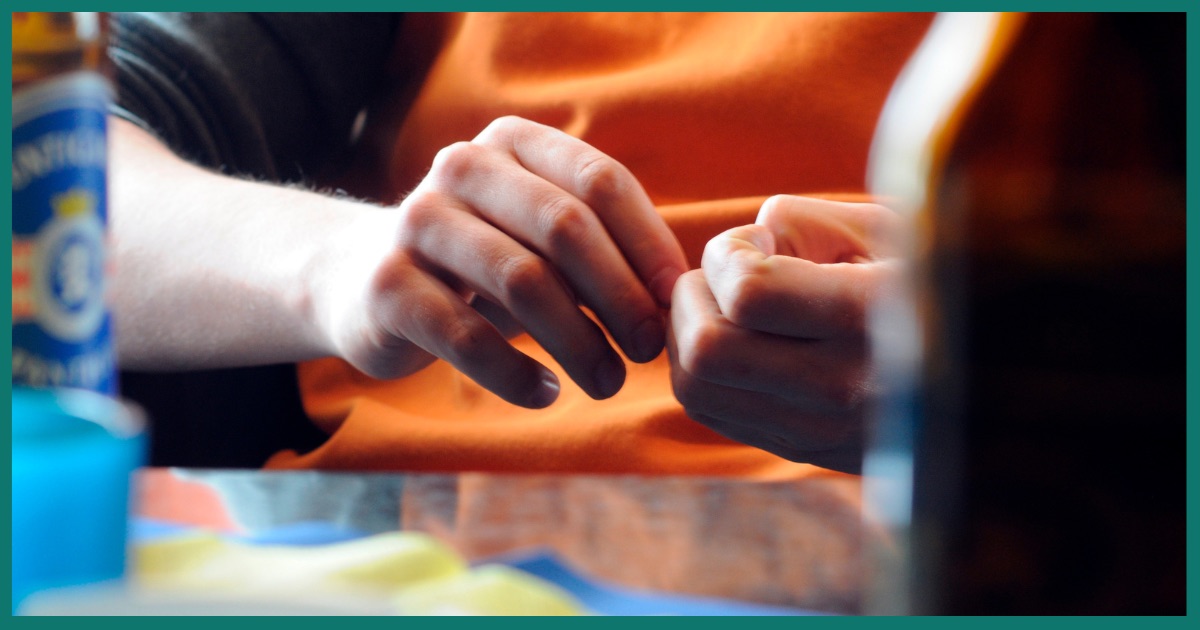What to Do After an Alcohol Relapse: A Guide to Getting Back on Track
By Sophie Solmini
Founder, ICADC, MATS, NCRC

Clinical Context: This article is reviewed by a Certified Alcohol and Drug Counsellor. It provides educational information and is not a substitute for professional medical advice.
There’s a specific kind of silence that comes after a relapse. It’s heavy with guilt, shame, and the frustrating thought, “Here I am again.”
All the hard work, the sober days you strung together,it can feel like it was all for nothing. Your inner critic goes into overdrive, telling you that you’ve failed, that you’re not strong enough, and that you might as well give up. If you are in that place right now, please hear this: a relapse is not a moral failing. It is not the end of your story.
It’s a painful, but common, part of a non-linear journey. At Heal@Home, we help Canadians navigate this exact moment not with judgment, but with a plan. This isn't about starting over from zero; it's about learning, adjusting, and getting back on track with more wisdom than you had before.
The First 24 Hours: Your Immediate Action Plan
Before you can analyze what happened, you need to manage the immediate aftermath. The goal here is to stop the shame spiral and care for yourself.
- Press Pause and Forgive Yourself: The most important first step is to stop. Don't let one drink turn into a day of drinking. Take a deep breath and offer yourself the same compassion you would offer a friend. You are human. This happens.
- Rehydrate and Nourish: Alcohol depletes your body of water and essential nutrients. Drink a big glass of water. Eat a simple, nourishing meal if you can. Caring for your body is the first step in caring for your mind.
- Reach Out, Don't Hide: Shame tells you to isolate yourself, but this is when you need connection the most. Call a trusted friend, a family member, or a support person. Simply saying the words, “I had a slip, and I’m having a hard time,” can lift a huge weight.
From Setback to Setup: Turning a Relapse into Data
Once the immediate crisis has passed, you have an opportunity. A relapse, while painful, provides invaluable data about your triggers and your recovery plan. It’s time to be a detective, not a judge.
- Trace It Back: What happened in the hours or days leading up to the drink? Were you stressed from work? Feeling lonely? Overly tired or hungry? Be honest and specific. Identifying the trigger is the key to disarming it next time.
- What was the 'Story'?: What did the voice in your head say to give you permission? Was it “Just one won't hurt,” “I deserve this,” or “Who cares anymore?” Understanding that internal narrative is crucial.
- Where Did Your Plan Fall Short?: Did you find yourself in a high-risk situation without a plan? Did you ignore a craving instead of using one of your coping tools? This isn’t about blame; it’s about finding the weak spot in your defenses so you can strengthen it.
Breaking the Cycle: How Medical Support Changes the Game
One of the most dangerous parts of a relapse is the “Abstinence Violation Effect.” It’s the “what the hell” effect: the feeling that since you’ve already broken your sobriety streak, you might as well go all in. This is what turns a single slip into a prolonged binge.
This is where modern medical support can fundamentally change the outcome of a relapse. At Heal@Home, we use evidence-based tools like The Sinclair Method. When you're on a medication like naltrexone and have a slip, something incredible happens: the alcohol doesn't provide that same rush of pleasure. The 'reward' is blocked. Because the drink isn’t as satisfying, the compulsion to have a second, third, or tenth is dramatically weakened. It gives you the space to stop, think, and get back on track immediately, without the catastrophic loss of control. It turns a potential disaster into a minor, manageable event.
Strengthening Your Foundation for Next Time
Every time you get back on track after a relapse, you are stronger and smarter than before. Use this experience to reinforce your commitment.
- Reconnect With Your 'Why': Why did you decide to change your relationship with alcohol in the first place? Write it down. Put it on your phone. Remind yourself of the life you are building.
- Adjust Your Plan: Based on the data you collected, what needs to change? Do you need to avoid a certain place? Develop a new strategy for handling stress? Be proactive.
- Get Professional Support: You don’t have to do this alone. Working with a therapist or a medical team provides you with accountability and expert guidance. For more resources on coping strategies, the Government of Canada offers valuable, non-judgmental information.
You Haven't Lost Your Progress
Every sober day you had still counts. They are proof that you can do this. A relapse doesn’t erase that progress; it’s just a detour. If you're in Canada and tired of the relapse cycle, contact Heal@Home for a confidential chat about our programs. Call us at 647-545-6751 or visit us online today.
Interested in our Program?
Our team provides a private, 12-week protocol designed to help you regain control from home.
Speak with our Team